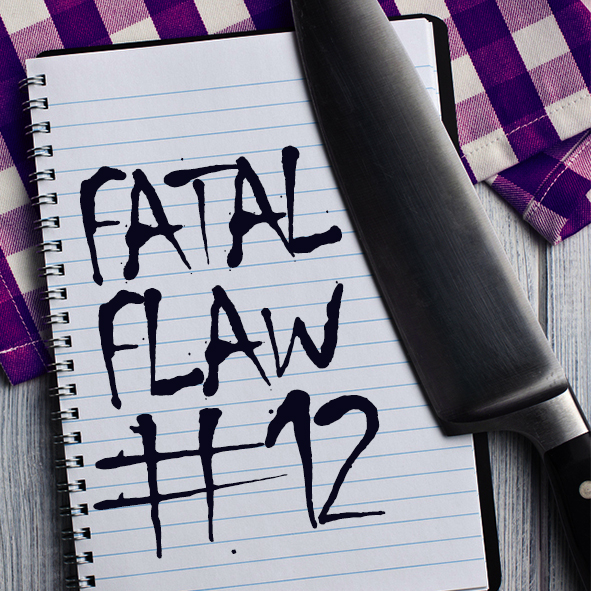6 Words Every Writer Should Avoid
Today’s guest post is by author R. J. Thesman
As a writing coach, I often hear clients utter specific reasons for not being able to write. These particular reasons, focused around six words, keep writers stuck behind emotional blocks. So to move toward our writing goals, it is important to avoid using these six words as excuses.
What If
The first two words “What if?” represent a question based on fear.
“What if I get a contract and I can’t meet the deadline?”
“What if I get rejected?”
“What if I have only one book in me?”
Some of the ways to fight against “What if” is to beat it back with the truth. Every writer will at some point be rejected because rejection is a given in this type of creative pursuit. But we can learn from our failures, study good writing, and become stronger writers.
If we use fear as a motivator rather than a paralyzer, we can march toward more publishing credits and fewer rejections.
As Jeff Goins writes, “Courage is doing the thing only you can do.” Only you can write your story. Only you can place certain characters within a book, using your life experiences and your creative plot lines. Only you can write that memoir that outlines the journey of your life.
To avoid “What if?” we need to stop comparing ourselves to other writers. Instead we could look for support in critique groups, or enlist the help of a writing partner who will keep us accountable.
We can also rework those “What if?” questions and make them positive.
“What if I succeed and love being a writer?”
“What if my one book becomes a series children love, and it inspires them to read more?”
“What if I impact someone’s life through my words?”
But
The third word to avoid is “but.” It sounds like a reason but it is really an excuse.
“I want to write, but I don’t have the credibility in my bio.”
“I long to be a writer, but I don’t have a journalism degree. Nobody will trust my words.”
“I’ve always wanted to be a writer, but I don’t have a platform.”
All of these “but” statements can be countered with the personal experience article and the memoir genre. Writing about your personal experience is the easiest way to earn a publishing credit because no one can discredit your story.
No one else has lived your life, and no one can judge how you have reacted to life’s valleys and mountaintops. Your journals might be filled with incredible material only you can write: the way your braids felt as they bounced on your back when you ran across the playground, the awkward conversations and thoughts as you began to discover your personality during junior high, the pain of your broken heart when they lowered your father’s casket into winter’s hard earth.
Every writer can develop a platform filled with publishing credits based on personal experience.
The most common “but” statement is “But I don’t have enough time.” We all have 168 hours each week, and we alone determine what is most important to us—how we will spend our time.
Sure, during certain seasons of life, time management will vary. Raising triplets during their first two years involves a different commitment of time than the months after you drop them off at the college dorm.
But imagine the wealth of material you can jot down for future use: tips on how to raise healthy kids, recipes for finicky toddlers, best practices for disciplining children without breaking their spirits. Keeping a journal handy becomes a vital tool for the writer who refuses to let the “buts” stop her.
We may not have the quantity of writing time we want, but we can make some time to write and to work on our craft. Writers who refuse to make excuses find time during a lunch hour, a subway commute, halftime at their child’s basketball game, early-morning plotting, late-night character sketching, weekends or writing retreats.
When we set healthy boundaries on our time, find our motivation, and persevere, those “but” excuses lose their power.
I Should Have
The final three words to avoid are “I should have.”
“I should have started writing years ago.”
“I should have jotted down that idea in the middle of the night.”
“I should have attended that writers’ conference. Now it’s too late to find an agent.”
The “I should haves” are based on regret and false guilts of the past. They force us to look backward instead of moving toward our goals. “I should have” becomes its own excuse, and without changing our behaviors, this regretful attitude allows us to sit around not writing and instead indulging in a pity party.
Gandhi said, “You may never know what results come of your actions, but if you do nothing, there will be no results.”
How many of us want to journey to the end of life and then cry, “I should have become a writer. I should have finished that memoir and given it to my children and grandchildren. I should have ignored the excuses and used every spare minute to craft words into sentences, paragraphs, and chapters.”
So how do we defeat the “I should haves”?
Stop multitasking. Focus on one task at a time and conserve creative energy for what is important to you. Know your best energy time and utilize it. Do you think better in the morning or in the evening, or maybe early afternoon?Take a break and give yourself permission to walk in crunchy autumn leaves or stretch out for a cozy nap. Schedule an artist date, where you visit a gallery and create the story behind the portrait. Read, read, and read good books.
Don’t overthink the process. Just sit down and start typing words. Each morning, begin with the statement, “Today I will . . .” Then do it. And congratulate yourself with each successful completion.
When we recognize how we’re using these six emotionally blocking words, we can be more aware of how to avoid them. Then we’ll find ourselves using six words that are much more exciting: “I’m proud to be a writer.”
 R. J. Thesman is the author of numerous books, including the Reverend G trilogy. She is a certified writing coach and adjunct faculty at several writers’ conferences. Connect with her at her blog, on Facebook and Twitter.
R. J. Thesman is the author of numerous books, including the Reverend G trilogy. She is a certified writing coach and adjunct faculty at several writers’ conferences. Connect with her at her blog, on Facebook and Twitter.












WOW!!!! Thank you!
You’re welcome, Kelly. Glad you found the post helpful !
Excellent post. This will stick with me: “If we use fear as a motivator rather than a paralyzer, we can march toward more publishing credits and fewer rejections.”
Thanks!
Kelly – I’m glad you found a statement to stick with you. Hope you march right through any fears and gain more publishing credits.
Excellent reminder. Thanks.
Thanks, R.J.
Your what if section reminds me of one of my sons. When he was young, he used to come up with weird questions while were in the car.
“What if the road opened up right in front of the car and we didn’t have time to stop?”
“What if a volcano appeared all of a sudden?”
… and so it would continue, his fertile imagination conjuring up impossible scenarios. I prefer your positive twist.
These are what I call bad words. The words commonly called bad are simply strong, which is good. Nice post!
Thank you very much.